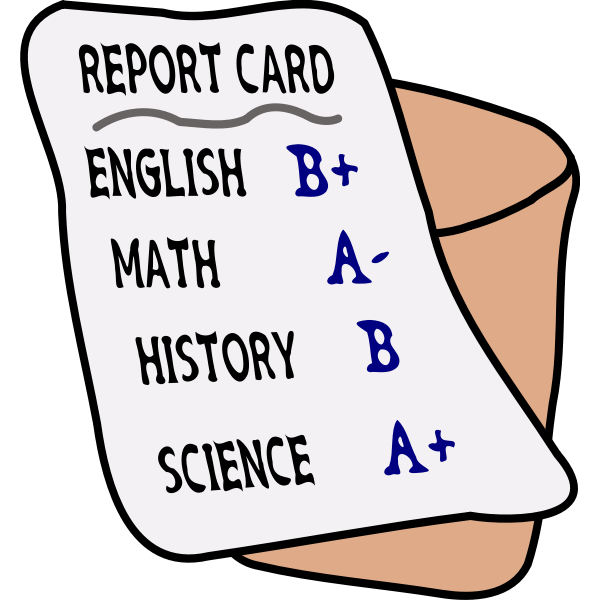With finals season rapidly approaching, so is the time of year when Wellesley College students will receive their final grades for the semester. The further along in my college career I get, the more frustrated I’ve gotten with having my work graded at all. Grades are stressful and often mean that all of my hard work over the semester is boiled down to a single letter per class. Some days, I can’t help but wonder: can’t we just get rid of grades all together?
In my experience, there is a perception that Wellesley students are perfectionists who care too much about their grades and if they just changed their mindset, they would be less stressed. While this doesn’t apply to all students, in all honesty, it does apply to me. The thing is, I don’t want to care about my grades. I would be happy never worrying about them again. As someone who is least considering applying to grad school, and has to submit the occasional transcript for an application, it feels like I have no choice but to care about my grades because other people will be using them as a way to evaluate me. I know this pressure is even worse for students who need a certain GPA to maintain their scholarships or are interested in applying to programs such as medical school or law school. Rather than placing the blame on individual students for caring about their grades, I think it’s worth looking at the wider systems that emphasize grades.
Grading has been criticized for a wide variety of reasons: being arbitrary; making students care less about learning and be more risk averse; not providing enough information and worsening’s student mental health. I know myself and my fellow students have experienced some of these criticisms first hand.
But it seems that the College recognizes that reducing emphasis on grades gives way to intellectual interest. Our shadow grading policy is a reflection of that understanding. On the College’s website, part of the justification for shadow grading is that “it further enables them [first-years] to use their first semester to refocus attention from grades to intellectual engagement and inspiration.” While the College acknowledges that not publicly reporting grades helps students focus on learning instead of their scores, this logic is not applied beyond the first semester.
While the College’s website provides descriptions of each letter grade, I find the wording so vague that the standards are almost meaningless. For example, a C requires “satisfactory familiarity with the content” and an A requires students “meet with conspicuous excellence every demand which can fairly be made by the course.” A D doesn’t even specify that satisfactory familiarity is required, only that it is a passing grade. What does satisfactory mean, and why can you get a passing grade without a satisfactory understanding of the material? What does excellence mean and why does it need to be conspicuous excellence instead of regular old excellence? What demands are fair for a course to make?
This last question is especially pressing. I would be doing significantly worse in my classes if I had to work more hours for financial reasons, had family obligations or my disability posed a greater challenge to completing my school work. What do fairly made demands look like when some students have five hours to spend on a class and some have 15?
There are several ways my professors at Wellesley have attempted to address the issues of grading. One example is mastery-based grading, where students are assessed with respect to specific standards. Students are assessed multiple times per standard and are able to show their growth over time. In my experience, assessments are given in terms of words such as “in progress” or “mastered.” The idea behind mastery-based learning is that rather than having one chance to succeed students are given multiple opportunities to improve from past experiences. When you think about it, this makes sense. When I did research and set up an optical alignment incorrectly, I wasn’t told “you failed, moving on.” Rather, I practiced the same skill again and again until I had learned how to do it. It should be the same in our classwork — incorporating the feedback we receive so we can improve.
While most colleges and universities use traditional letter grades, some have moved away from this system. Other schools have systems in which all classes are Credit/Non or honors, credit, no credit. Getting rid of letter grades or GPAs at Wellesley isn’t something that can or should happen overnight. However, I think that it’s worth having a conversation both within the Wellesley College community and in education in general, about what function grades are supposed to serve and what effects they actually have. Should grades be a way of establishing mastery of a skill, or differentiating the ‘best’ students from the ‘average’ ones? Are they supposed to be a reflection of learning? Are they really? Are there better grading systems in place than the ones we have, and should we switch to those? While I don’t have the qualifications to answer these questions, it’s past time to consider what grading should look like both at Wellesley and beyond.




